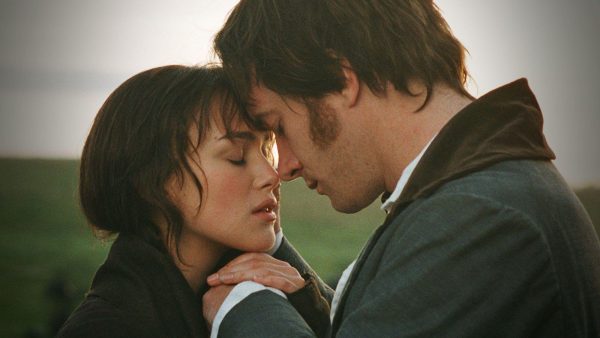Joker – Two Perspectives
Joker opened in theater’s on October 4th after winning the “Golden Lion” at the Venice Film Festival. The film has received mixed reviews from critics, currently sitting at a 68% on rotten tomatoes. Image owned by Warner Bros. Pictures and is used here under fair use criticism law.
Before reading please understand that Joker is rated R and that this review contains spoilers.
AC Smith – Technical perfection, but with Little Interest
Stories that focus on an in-depth analysis of character are generally ones I find quite interesting. However, with Joker, that was not the case. It wasn’t due to the movie being poorly directed or edited or the acting being bad, in fact, it was the exact opposite. I simply just didn’t feel an emotional connection to the character Joker, so this movie wasn’t of much interest to me.
From a technical standpoint, the movie was phenomenal. The score kept the atmosphere eerie throughout without feeling like it was overpowering or unnecessary, and in a way it made it seem more realistic. It created suspense in just the right places, and, best off, the instruments anticipated what would happen next. For example, if you were to hear some string instruments, you could assume the scene is leading up to the murder of someone by Joker. Along with that, the editing was incredibly smooth, and the filters that were used made it possible to imagine what you were watching was actually occurring in front of you, while also showing that this movie takes place during a different time.
Joaquin Phoenix did a phenomenal job portraying the Joker and creating a character that one can empathize with. I don’t at all agree with the argument that the Joker copes with his mental illnesses by murdering others in the slightest. However, I can understand his frustration with constantly feeling negative thoughts for I have had periods like that as well. You truly could tell the Joker is a broken man, because Phoenix portrayed him in a way that showed all his layers. One can see the internal struggle the Joker is constantly faced with through the expression in something as simple as his eyes. There were times where he would be smiling, but if you took a closer look you could tell that he was continuing to suffer, as seen through his eyes and softening of his cheekbones. It is amazing how Phoenix can showcase the complexity of Joker in a way that seems so simple and could be difficult to notice unless one is looking for it. It is elements like this that make the movie rewatchable, for you could find new small details every time.
Zac Bestwick – A Misunderstood Masterpiece
Todd Phillips’ Joker has captivated the attention of critics and audiences alike since its release on October 4th. The film’s subject matter is nothing if not polarizing, and I predict that “Joker” will go down as one of the most controversial movies of the 21st century, joining oft-discussed pictures like The Da Vinci Code and Django Unchained. Critics are especially divided, with nearly every professional review either praising or vilifying the work. This split is largely a result of how easy it is to misinterpret Phillips’ piece and its many layers. While confusing, these layers are what makes Joker so great.
At first glance, Joker appears to glorify its disturbed protagonist and the horrific acts of violence he commits during the film’s two-hour run-time, leading many reviewers to accuse it of romanticizing shootings and acts of terror that are perpetrated by similarly disturbed individuals in real life. In actuality, this movie is a poignant, fascinating portrait of a shocking and darkly compelling character, and it has a lot more to say about the entertainment industry than it does about murderous clowns.
To understand what the film means, it is necessary to understand why it was made. Writer/director/producer Todd Phillips is by no means a new face in Hollywood, but he has never made anything like Joker. Phillips’ career is primarily land-marked by outrageous comedies like Hangover and Old School, films which can be most quickly identified by slapstick humor and ‘edgy’ jokes that many audiences nowadays find offensive. Like many comedic filmmakers, Phillips was frustrated by the new, “woke” audiences that he feels can’t take a joke. In an interview with Vanity Fair, Phillips said, “There were articles written about why comedies don’t work anymore — I’ll tell you why, because all the … funny guys are like, ‘F*** this s***, because I don’t want to offend you.” Phillips’ frustration not only fueled his shift from comedy to crime thriller, it also comprises the soul of his latest film.
Joker follows Joaquin Phoenix’s Arthur Fleck, an aspiring stand-up comedian whose frustration with society gravitates him to violence. Fleck’s frustration and Phillips’ are quite similar. Both are upset with the establishment; both feel outcast by that establishment. While Todd Phillips believes he has been alienated by Hollywood and easily offended moviegoers, Arthur Fleck sees himself as a loner whom nobody notices. Throughout the film, there are several other connections between the director’s frame of mind and his character’s, but there is also one key difference: how they choose to express the antiestablishmentarianism. Phoenix’s Joker takes his societal resentment out on the people around him that he feels are responsible: his mother, a colleague, and a beloved late-night host (played by Robert DeNiro, perhaps a take on Johnny Carson). Todd Phillips, on the other hand, made a movie (clearly a more productive outlet). In molding his own feelings into a character that has been portrayed on the big screen so many times, he and Phoenix managed to create a character that honored its roots while making something new and spectacular in the process.
Joker draws inspiration from more than just comic books, it also bears a strong resemblance to Scorsese classics like Taxi Driver and The King of Comedy. It is a film that wears its influences on its sleeve while upturning and reinventing its source material. In a market crowded by films that drown their audiences in references and “easter eggs,” Joker manages to make and say something brand new.
What just about everybody agrees on is that star Joaquin Phoenix is at his very best in this film. His physicality, mannerisms, vocal patterns, and yes, that horrific laugh, swirl together to form a uniquely fantastic performance. His portrayal of the Clown Prince of Crime is most eloquent in the movie’s climax. Arthur Fleck, in full clown trappings, finally confronts his lifelong hero/adversary, DeNiro’s Carsonesque Murray Franklin (host of Arthur’s favorite TV show). On live television, Fleck admits to Franklin that he was responsible for an unsolved triple homicide which caused Gotham City to spiral into chaotic class warfare. Phoenix delivers a monologue that serves as his character’s mission statement, decrying the neighbors, colleagues, and politicians who ignore people like him. He notably states that he finds the deaths he caused to be funny, and that Franklin (who represents a cruel establishment in Fleck’s eyes) will not agree simply because comedy is subjective. Franklin is not sympathetic, but he attempts to reason with Fleck. In a boiling rage, Fleck draws a pistol and murders Franklin in clear view of the studio audience and fans around the country. He leaves in the back of a police car, from which he can see mobs of clown-themed rioters inspired by his horrendous acts. He smiles.
This grand climax sports great direction, acting, and cinematography, but it also has a quality that virtually no other movie scene has: it scares me. I have seen over five hundred films in my life and none made me so uncomfortable. No frame made my heart sink as much as seeing Phoenix explode in the way that he does. Watching Murray Franklin, a character who just wanted to help his city, lean back lifelessly in his chair hurt more than any tragedy I’d seen in the past. The rest of Joker is great, but its talk show scene is perfect. It eloquently communicates the thesis of the work: that comedy is subjective. Hollywood and Twitter-savvy viewers see Phillips much like we all see clowns: Deranged. Crazy. Threatening. He just wanted to make people laugh.
The closing lines say it most vividly, as an apprehended Arthur Fleck discusses his crimes with a prison shrink. He laughs to himself as she reminds him of the horrible crimes he is responsible for. She asks him what he thinks is so funny, and he tells her that he was thinking of a joke. She inquires further, hoping he’ll share this joke with her. Fleck shakes his head, “You wouldn’t get it.”












